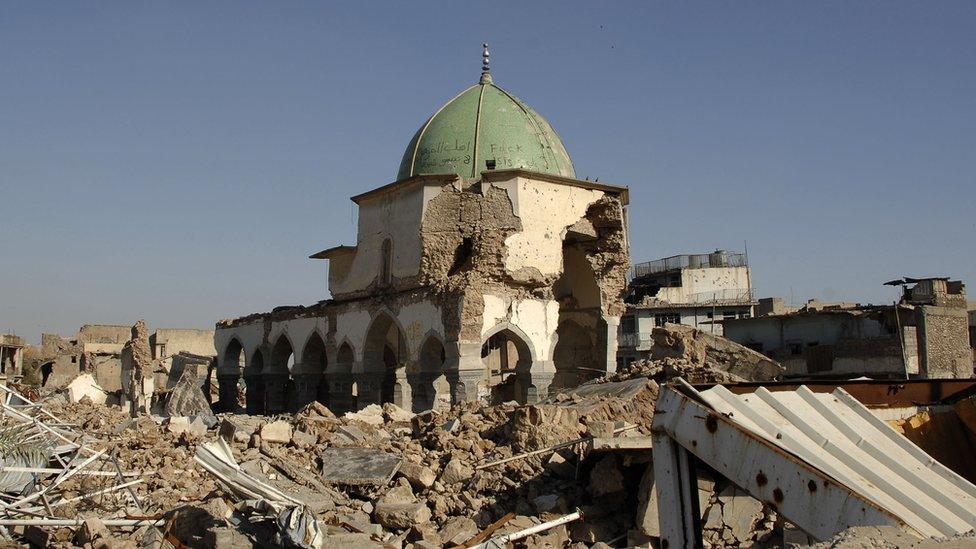Shamima Begum: 'I didn't want to be IS poster girl'
- Published
On Monday Shamima Begum told the BBC she never sought to be an IS "poster girl"
Shamima Begum - the schoolgirl who fled London to join the Islamic State group in Syria - has said she never wanted to be an IS "poster girl".
Ms Begum, who has just given birth, said she now wants the UK's forgiveness and supports "some British values".
She told the BBC while it was "wrong" innocent people died in the 2017 Manchester attack, it was "kind of retaliation" for attacks on IS.
The 19-year-old left Bethnal Green four years ago with two school friends.
There has been debate about Ms Begum's plight since she was found in a Syrian refugee camp by the Times newspaper last week after reportedly leaving Baghuz, IS's last stronghold in the country.
She gave birth to a baby boy last weekend, having previously lost two children, and named him after her first son.
While she told the BBC she would have let her late son become an IS fighter, she wants her new baby "to be British" and for her to return to the UK with him.
'No troops to rescue Britons'
In an interview with the BBC's Middle East correspondent Quentin Sommerville on Monday, Ms Begum said: "I don't actually agree with everything they've done.
"I actually do support some British values and I am willing to go back to the UK and settle back again and rehabilitate and that stuff."
Home Secretary Sajid Javid told MPs on Monday that he would not "hesitate to prevent" the return of Britons who travelled to Syria to join IS. While the UK cannot leave people stateless, under international law, he said any such Britons would be "questioned, investigated and potentially prosecuted".
No British troops would be used to help or rescue them, he said. He told MPs that more than 100 dual nationals have already lost their UK citizenship after travelling in support of terrorist groups.
"If you back terror, there must be consequences," he said. More than 900 people have left the UK to join the conflict in Syria, said Mr Javid, adding that those who join IS have "shown they hate our country and the values that we stand for".
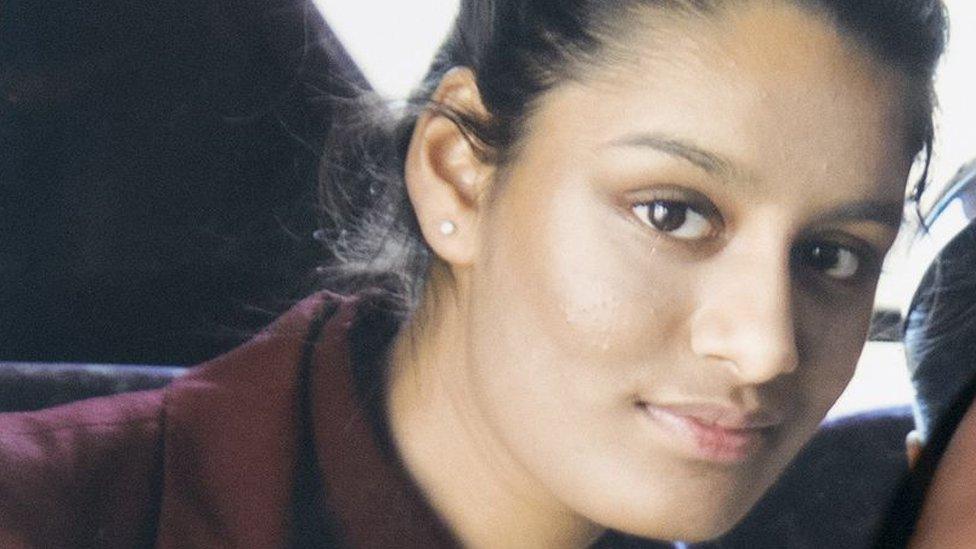
Ms Begum was 15 and living in Bethnal Green, London, when she left the UK in 2015
Asked about the Manchester Arena attack in 2017 in which 22 people - some of them children - were killed in a bombing claimed by IS, she said: "I was shocked. I didn't know about the kids, actually. I do feel that is wrong. Innocent people did get killed."
She compared the attack to military assaults on Syria, saying: "It's one thing to kill a soldier, it's fine, it's self-defence. But to kill people like women and children just like the women and children in Baghuz who are being killed right now unjustly by the bombings - it's a two-way thing really because women and children are being killed back in the Islamic State right now.
"It's kind of retaliation. Their justification was that it was retaliation so I thought, okay, that is a fair justification."
Ms Begum said she was sorry for all the families who had lost people because of the attacks in the UK and other countries.
"That wasn't fair on them," she said. "They weren't fighting anyone. They weren't causing any harm. But neither was I and neither were other women who are being killed right now back in Baghuz."
'I want forgiveness'
When it was suggested that her going to Syria might have been a "propaganda victory" for IS, Ms Begum said: "I did hear a lot of people were encouraged to come after, but I wasn't the one who put myself on the news."
She added: "The poster girl thing was not my choice."
Ms Begum said she made the choice to go to Syria and could make her own decisions, despite being only 15 at the time. She said she was partly inspired by videos of fighters beheading hostages and also by videos showing "the good life" under IS.
She watched videos of the murders of British hostages, she told the BBC, but said she did not know the names of any of the victims.
Our correspondent said that "throughout the interview, Shamima Begum continued to espouse Islamic State philosophy." He added: "When I asked her about the enslavement, murder and rape of Yazidi women by IS, she said 'Shia do the same in Iraq'."
But she said: "I just want forgiveness really, from the UK. Everything I've been through, I didn't expect I would go through that.
"Losing my children the way I lost them, I don't want to lose this baby as well and this is really not a place to raise children, this camp."
Twelve more British women have arrived at the camp in Syria in the last week and more are expected, our correspondent added.
Tasnime Akunjee, the lawyer for the family of Shamima Begum, expects her to be "damaged" by her ordeal
Earlier, the lawyer representing Ms Begum's family said she is "damaged" and will need mental health support. Tasnime Akunjee also said her family are prepared to raise her newborn baby away from "IS thinking".
He said Ms Begum - who is legally British - had still not been in contact with her family and the family are trying to get the government to provide travel documents for Ms Begum and her newborn son, who he said has a right to citizenship.
Ms Begum left the UK in February 2015 with two other schoolgirls, Kadiza Sultana and Amira Abase. Kadiza is thought to have died when a house was blown up, and the fate of Amira is unknown.
Mr Akunjee also called for an "urgent inquiry" into how Ms Begum and the other schoolgirls were able to travel to Syria.
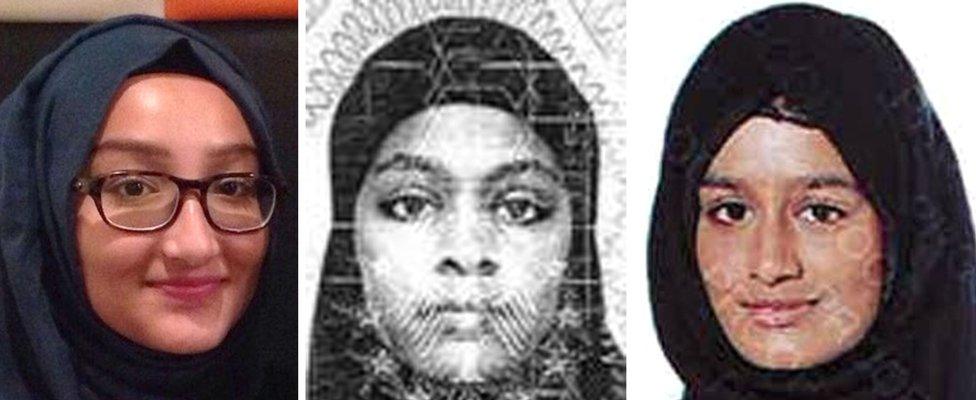
Kadiza Sultana, Amira Abase and Shamima Begum (l-r) in photos issued by police
Previously, Ms Begum said she escaped from Baghuz, Islamic State's last stronghold in eastern Syria, two weeks ago.
Her husband, a Dutch convert to Islam, is thought to have surrendered to a group of Syrian fighters.
Under international law, the UK is obliged to let a Briton without the claim to another nationality return home.
But the government does not have consular staff in Syria, and says it will not risk any lives to help Britons who have joined a banned terrorist group.
If Ms Begum is able to reach a British consulate in a recognised country, it is thought security chiefs could "manage" her return.
- Published17 February 2019
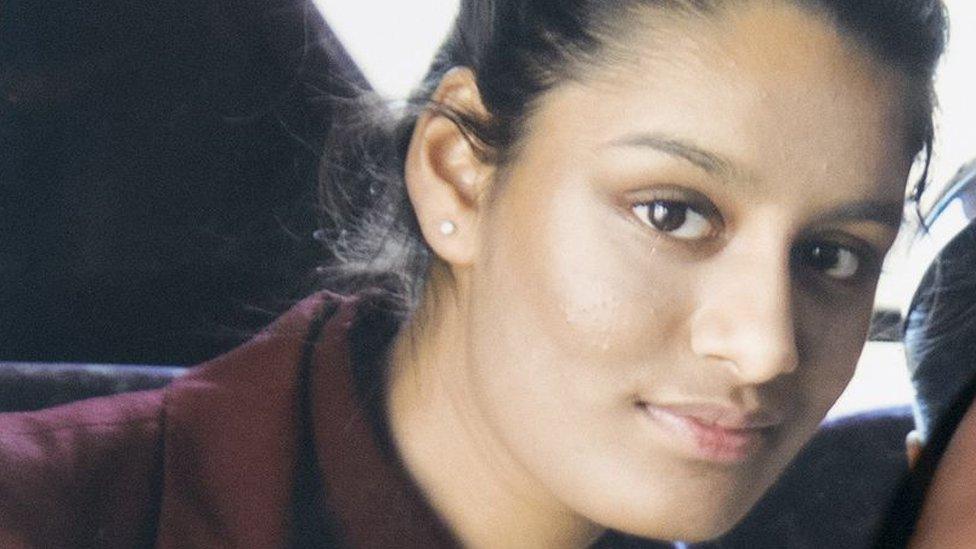
- Published17 February 2019
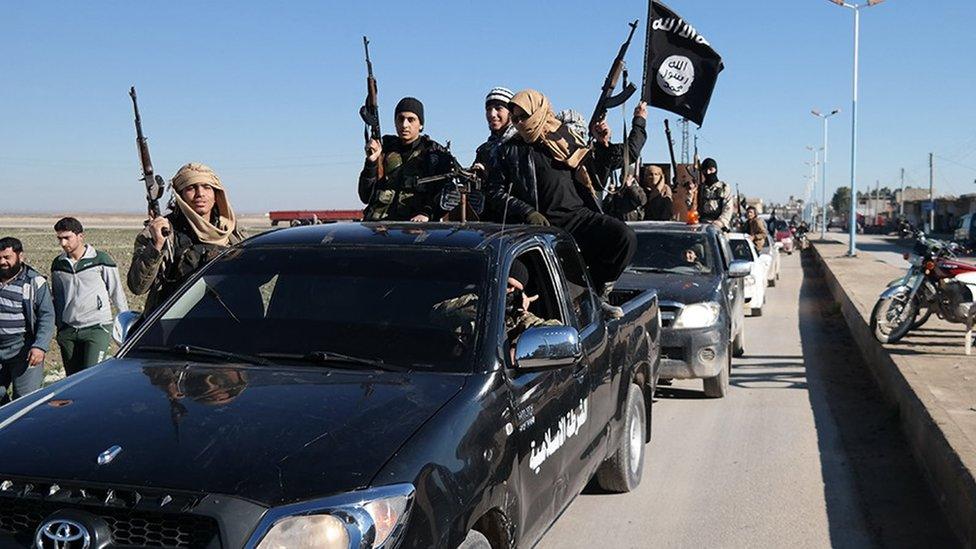
- Published15 February 2019
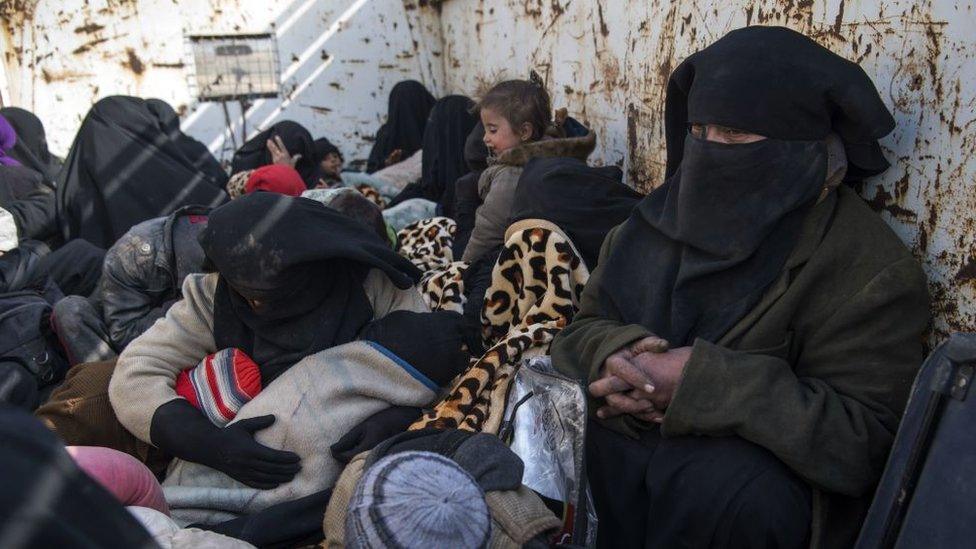
- Published14 February 2019
- Published23 March 2019
